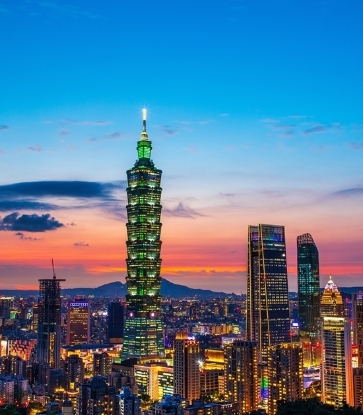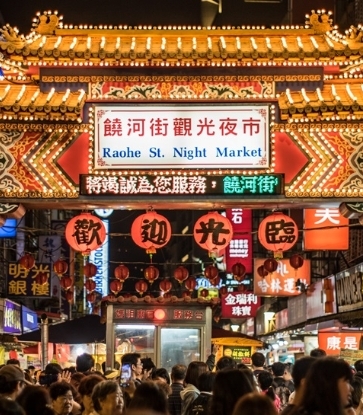
Located at the northern tip of Taipei, Beitou is the most mountainous district in the city. Back when Taiwan was under Japan's rule, the Japanese saw Beitou’s potential as a beautiful resort and built baths by the natural sulphur springs famed for its milk-like appearance.
In The Gaia Hotel, the experience is coupled with lush greenery around the resort that creates a tranquil environment. It's especially popular among women and tourists from Hong Kong and Macau.
Food here focuses on the quality of ingredients, knife skills and plating with flavours that lean more on the savoury side in the style of Sichuan, Canton and Taiwan. Famous dishes include crispy ribs and Buddha’s Temptation, a soup so good that legend says Buddha would jump over a wall to savour a portion.

The hot springs in Jiaoxi consists mainly of sodium bicarbonate, which means it's rich in minerals like sodium, magnesium, potassium, calcium and carbon. The spring water is drinkable as mineral water and is said to be excellent for skincare. Little wonder then that Jiaoxi has the highest density of spa resorts, since it is a hugely popular destination for tourists and locals alike.
The resorts are typically enclosed with high fences to protect the privacy of their visitors. Take Wellspring by Silks for instance. It also has Taiwan’s first rooftop spa, which lets you enjoy massages whilst admiring the vast plains of Lanyang.
For dinner, make your way to Mihan Jiaoxi, a contemporary Japanese restaurant that offers cuisine prepared with organic, locally sourced vegetables. Ingredients are also sourced from a variety of places, including seafood from the Taiwanese east coast, crab from Hokkaido, and beef from the US. Nothing better than a sizzling dinner after a relaxing dip!
SEE ALSO: 11 hidden eats to discover in Kaohsiung and Tainan

Further down south at Sun Moon Lake, the gentle waters are lauded for being of the greatest quality.
Fleur de Chine Hotel was the first resort to have natural spas in the Sun Moon Lake area, available in all 211 suites that are equipped with floor-length windows and balconies for sightseeing. In addition, there are massive public hot springs and therapeutic pools available for use.
Whilst you are enjoying yourself in the springs, don’t forget to try the famous No. 18 Taiwan Tea, also called Red Jade Tea, exclusive to the Nantou area. Its mellow taste sports soothing notes of cinnamon and mint.

The Jhiben hot spring is situated in a relatively undisturbed valley in the east, with breathtaking views of canyons and waterfalls. Spring water here is outstanding, and can reach 100 degrees – perfect if you're looking to alleviate bodily stress and pain. Game such as wild boar is regularly available on the menu, as well as rarer plants like roselle and sugar apples.

At the southernmost part of Taiwan, the spring waters of Pingtung are naturally carbonated, which turns the water bubbly for a massaging effect. Its relatively lower water temperature means less stress on the heart whilst submerged.
After enjoying continuous ‘massaging’, make your way to restaurants that do freshly butchered lamb hotpot. The lamb, stewed with a variety of Chinese medicinal herbs that enhances its flavour, is really the ultimate comfort food to have after a good soak in the hot spring.











